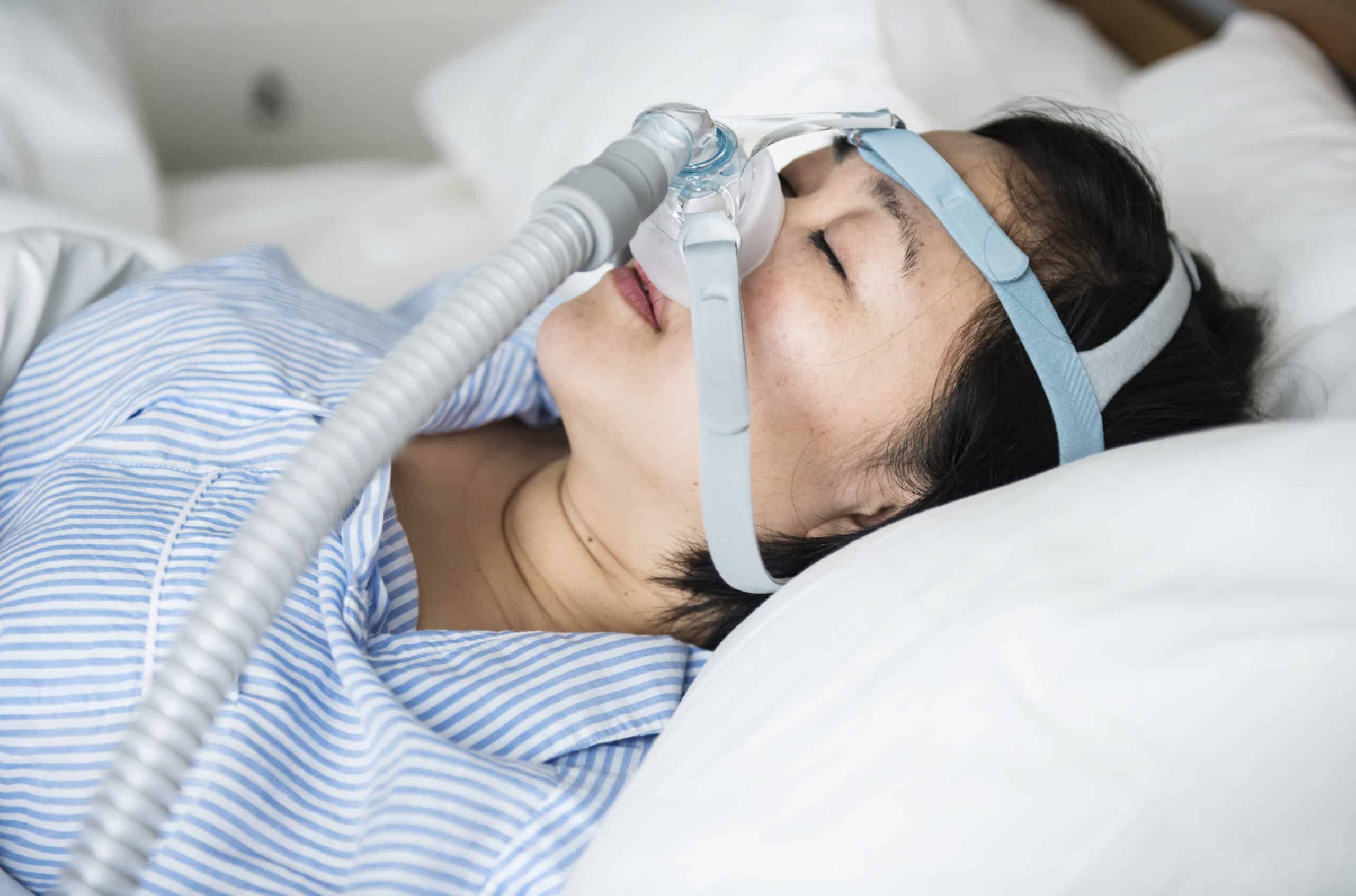
Do you often wake up feeling tired and groggy, despite getting a full night’s sleep? Do you snore loudly or gasp for air during the night? These could be signs of sleep apnea. Sleep apnea is a common yet serious disorder that affects millions of people worldwide. Not only does it disrupt your sleep patterns, but it can also have significant effects on your overall health and well-being. In this blog post, we will explore the various types and symptoms of sleep apnea, as well as its potential complications and prevention methods to help you better understand this condition. So grab a cup of coffee (or tea), sit back, and let’s dive into the world of sleep apnea!
What Is Sleep Apnea?
Sleep apnea is a common sleep disorder that affects millions of people worldwide. It occurs when the airway becomes blocked during sleep, causing interruptions in breathing. These pauses can last from a few seconds to minutes and may occur several times throughout the night.
There are two main types of sleep apnea: obstructive sleep apnea (OSA) and central sleep apnea (CSA). OSA is caused by a physical blockage of the airway, while CSA occurs when the brain fails to send signals to muscles involved in breathing.
Symptoms of sleep apnea include loud snoring, gasping or choking during sleep, morning headaches, daytime fatigue, irritability, and difficulty concentrating. If left untreated, it can lead to serious health problems such as high blood pressure, heart disease, stroke, and diabetes.
Risk factors for developing sleep apnea include obesity, smoking, alcohol consumption, and family history. However, it can affect anyone irrespective of age or gender.
If you suspect you have symptoms of this condition seek medical attention immediately as early detection leads to better management outcomes
Types Of Sleep Apnea
Sleep apnea is a sleep disorder that affects millions of people worldwide, and there are two main types of sleep apnea: obstructive sleep apnea (OSA) and central sleep apnea (CSA).
The most common type of sleep apnea is OSA, which occurs when the muscles in the back of the throat fail to keep the airway open during sleep. As a result, breathing becomes difficult, leading to loud snoring and interrupted breathing patterns throughout the night.
On the other hand, CSA is less common than OSA but equally as serious. It happens when your brain fails to send signals to your muscles responsible for controlling breathing during sleeping hours. The complications arising from CSA can be more severe since it involves issues with one’s brain function.
However, many individuals who have been diagnosed with one form of Sleep Apnea may also exhibit symptoms associated with both forms at varying levels.
Both types of sleep apnea do not discriminate between ages or sexes; they can affect anyone regardless of their age or gender. While each type has its unique characteristics and causes, getting an accurate diagnosis from a physician or healthcare professional will help you better understand your condition and how best to manage it effectively.
Symptoms
Sleep apnea is a sleep disorder that can affect anyone, regardless of age or gender. The condition is characterized by abnormal breathing patterns during sleep, which can lead to a range of symptoms and complications. Here are some common signs of sleep apnea:
One of the most notable symptoms of sleep apnea is loud snoring. People with this disorder often snore loudly and frequently throughout the night, which may be disruptive to their sleep as well as that of their partner.
Another sign of sleep apnea is gasping or choking during sleep. This occurs when the airway becomes completely obstructed, causing the individual to awaken suddenly to catch their breath.
Daytime fatigue and drowsiness are also common among people with this condition. Because they experience interrupted or fragmented sleep at night due to episodes of breathing cessation, they may feel excessively tired during the day.
Other potential symptoms include morning headaches, dry mouth upon awakening, irritability or mood swings, difficulty concentrating or remembering things, and high blood pressure.
If you suspect that you have any symptoms related to Sleep Apnea make sure you consult your doctor for proper diagnosis and treatment options available for your specific case.
Complications Associated With Sleep Apnea
Sleep apnea is a serious sleep disorder that can have several potential complications. One of the most significant risks associated with untreated sleep apnea is an increased risk of hypertension or high blood pressure. Repeated interruptions in breathing during sleep can cause stress on the body and lead to elevated blood pressure levels.
Another complication of sleep apnea is cardiovascular disease. Sleep apnea has been linked to an increased risk of heart attacks, strokes, and other forms of cardiovascular disease due to the strain it puts on the heart and circulatory system.
Untreated sleep apnea can also impact mental health by causing daytime fatigue and excessive daytime sleepiness. This can lead to poor performance at work or school, irritability, depression, anxiety, and social isolation.
In addition, untreated sleep apnea has also been linked to metabolic disorders such as diabetes mellitus type 2 which may exacerbate insulin resistance resulting in higher levels of glucose within the bloodstream thereby increasing chances for complications arising from diabetes.
Given these potential complications associated with sleep apnea, those who are experiencing symptoms must seek medical attention right away before they become more severe or potentially life-threatening.
Prevention
Prevention of sleep apnea is crucial to maintaining good health and avoiding the long-term complications associated with this condition. Fortunately, there are several steps individuals can take to reduce their risk of developing sleep apnea.
Maintaining a healthy weight through regular exercise and a balanced diet is one effective way to prevent sleep apnea. Excess weight around the neck can put pressure on the airway, making it more difficult to breathe during sleep.
Avoiding alcohol consumption before bedtime can also help prevent sleep apnea. Alcohol relaxes the muscles in the throat and tongue, which can block airflow during sleep.
Quitting smoking is another important step in preventing sleep apnea. Smoking irritates and inflames the airways, increasing the likelihood of breathing difficulties during sleep.
Sleeping on your side rather than your back may also be beneficial for preventing sleep apnea. Sleeping on your back allows gravity to pull down on soft tissues in the throat, narrowing or completely blocking airflow.
In some cases, treatment for underlying medical conditions such as allergies or hypothyroidism may also help prevent or improve symptoms of sleep apnea. It is important to discuss any concerns about snoring or disrupted breathing during sleep with a healthcare provider who can offer guidance and personalized recommendations for prevention and management strategies.
Finishing Off
Sleep apnea is a serious condition that affects many individuals worldwide. It can lead to various health complications if left untreated, such as high blood pressure, stroke, and heart disease.
The good news is that there are ways to prevent or manage sleep apnea effectively. Lifestyle changes like maintaining a healthy weight, avoiding alcohol and smoking, and regular exercise can help reduce the risk of developing sleep apnea. Additionally, using CPAP machines or oral appliances prescribed by your doctor can help alleviate symptoms.
If you suspect that you have sleep apnea or experience any of its symptoms discussed in this article, seek medical attention immediately. Early diagnosis and treatment play a crucial role in managing the condition’s effects on general health.
Getting quality sleep every night is essential for overall physical and mental well-being. Don’t compromise your health due to lack of proper sleep; take necessary steps today towards better sleeping habits for improved general health!
